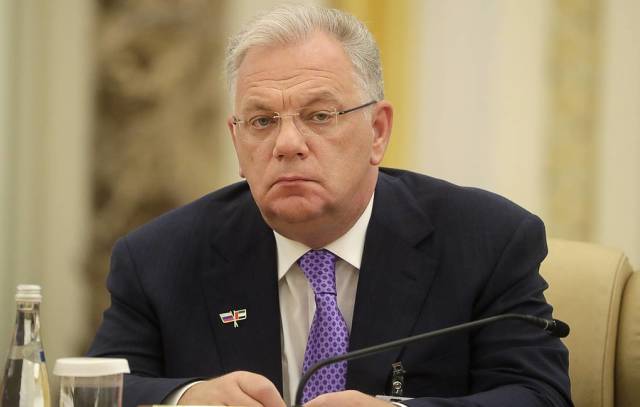According to Dmitry Shugaev, the Stockholm Institute for Peace Research uses only open data, which is not complete
MOSCOW, December 6. /tass/. The methodology of the analysis of the global arms market used by the Stockholm Institute for Peace Research (SIPRI) does not reflect the real situation. Dmitry Shugaev, director of the Federal Service for Military-Technical Cooperation (FSMTC), told reporters about this, commenting on the SIPRI report released on Monday, according to which sales volumes of Russian arms manufacturers are falling.
"The calculation methodology used by SIPRI to estimate the sales volumes of defense companies is their own assessment, which, frankly speaking, does not reflect the real picture. Instead of the specific cost of the goods, they use the so-called trend indicator, which has approximately the same value for the same type of products. That is, emphasis is placed on the assessment of the quantitative side, which, as the institute itself emphasizes, cannot be used to assess export volumes," Shugaev said.
According to him, SIPRI uses only open data, which is not complete. "And such things as spare parts and services, they generally do not fully take into account," the head of the Federal Customs Service added.
As Shugaev noted, the SIPRI rating methodology assumes a political bias of the assessment. "In addition, SIPRI employees are still representatives of Western institutions and therefore cannot do without a political component," Shugaev summed up.
About the SIPRI report
On December 6, the Stockholm Peace Research Institute published an annual report on the analysis of sales of arms and military services of the 100 largest companies in the world for 2020. According to him, Russian manufacturers in the top 100 have been reducing their sales volumes for the third year in a row. Thus, the Almaz-Antey company, which occupies the 17th place in the rating, and the United Shipbuilding Corporation, which is in 33rd place, reduced sales by 31% and 11%, respectively.
On the one hand, this is due to the completion of the state armament program for 2011-2020, which is why the subsequent financing of the military industry has decreased in real terms, on the other - the violation of the delivery schedule caused by the coronavirus pandemic. At the same time, the report notes that the decline occurred against the background of the government's support for the military-industrial complex, which was undertaken to minimize the negative effect of the pandemic.

